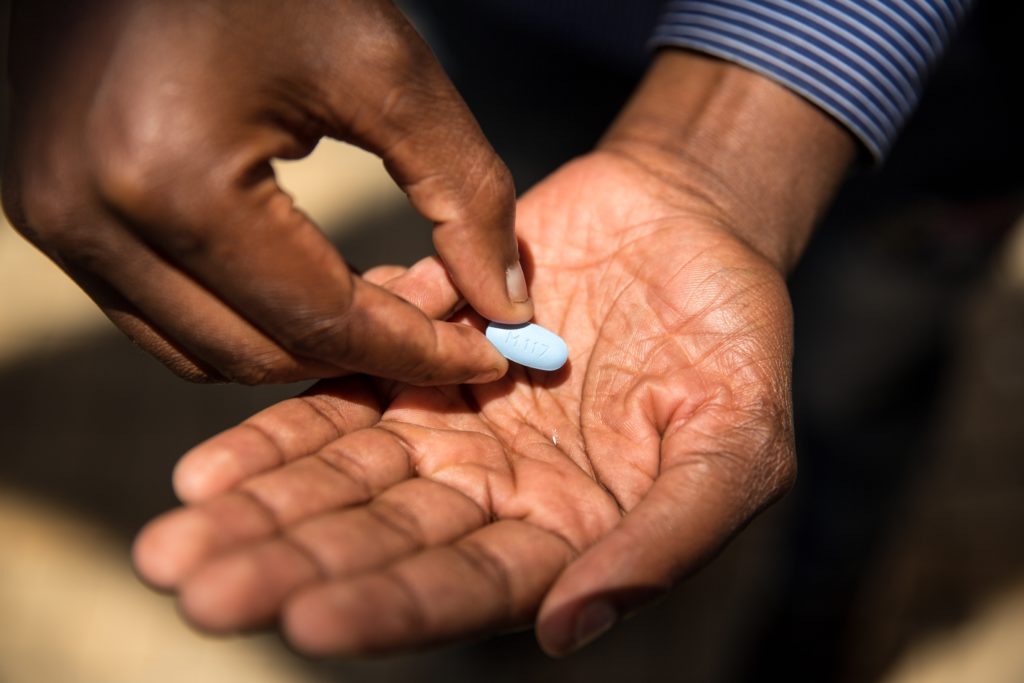Government announces huge £23.4 million funding boost for PrEP roll-out

Pre-Exposure Prophylaxis (PrEP). (Getty)
The British government on Tuesday (16 March) effectively doubled crucial funding to its national rollout of pre-exposure prophylaxis, otherwise known as PrEP.
Health ministers have injected a thumping financial boost to the routine commissioning of the daily drug, the most effective protection against HIV transmission.
The public health grant, used to fund local authority health initiatives, will include a dedicated £23.4 million to cover costs of PrEP for 2021 to 2022 – a £12.4m increase on funding from the previous year.
“I am pleased the public health grant for 2021/22 includes £23.4m to cover local authority costs of routine commissioning of PrEP,” explained minister for prevention, public health and primary care Jo Churchill in a public statement.
“We know the significant impact PrEP plays in reducing HIV transmission, as part of a combination of preventative interventions.”
Churchill added that the pill is now available “in most areas across the country” following a phased roll-out in 2020.
“This is particularly welcome for individuals and allows increased access despite the demands on services throughout the COVID-19 pandemic.
“This funding will benefit tens of thousands of people and take us closer to our commitment of zero new HIV transmissions in England by 2030.”
As activists welcome PrEP uplift, a word of caution: Ensure everyone ‘can benefit’, not just a few
As officials shuffle spending priorities as Britain’s third national lockdown is gingerly unwound, sexual health advocates welcomed the “significant and important uplift” in PrEP delivery.
“As lockdown 3.0 comes to an end and many more people starting to have sex – or more sex – again, we absolutely welcome what looks like a significant and important uplift in funding for the delivery of PrEP over the next year,” said Richard Angell, head of policy at the Terrence Higgins Trust, in a press release.
“This is an important move from government – proper PrEP access is vital as we seek to end of new HIV cases by 2030. This announcement also provides peace of mind for current PrEP users knowing their access will continue.”
As much as the pick-me-up ensures more and more Britons will have access to the life-saving drugs, Angell sought to stress that such availability must be equal and education is key.

Pre-exposure prophylaxis, or known simply by ‘PrEP’, is a common antiviral drug. (Getty)
The rollout must not, he said, be treated as a silver bullet for curtailing HIV transmissions.
Instead, health officials must top up the national programme with schemes that better promote awareness of PrEP among certain groups, such as Black African men and heterosexual men women.
“We want to see PrEP available in the National Health Service services people are most likely to use including general practitioners and community pharmacies,” he said.
Angell also called for senior health officials to be “transparent about their PrEP funding and to be proactive in ensuring this important HIV prevention drug is reaching everyone who can benefit”.
“If the money earmarked for PrEP is spent elsewhere we will be holding decision-makers to account and back asking the government to ring-fence it again.”
The arrival of a nationalised PrEP distribution program brought respite to the around 103,800 people living with HIV in England, with around seven per cent of those unaware that they had contracted the virus, according to 2018 figures from Publish Health England.

